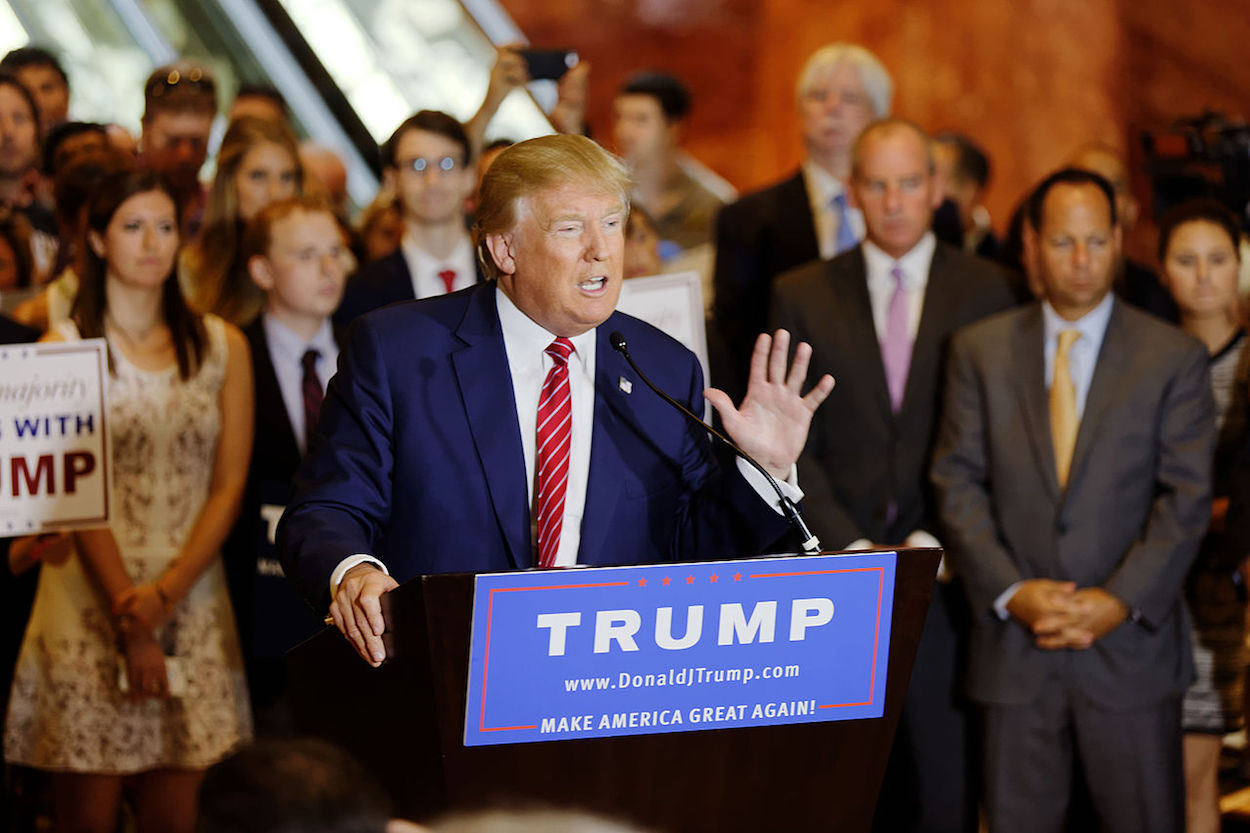by Brian Hioe
語言:
English
Photo Credit: Michael Candelori/CC
WITH TENSIONS set to ramp up between the US and China under a Trump presidency, it is ironic to note America’s drift towards what some deem to be the early stages of authoritarianism makes the US increasingly similar to China. Any moral high ground that the US claims over China or other countries on the basis of “human rights” may soon be lost because of the domestic policies that Trump claims that he will implement.
Trump has suggested implementing a Muslim registration system not unlike China’s current treatment of ethnic minorities within its borders, in which an entire ethnic group has its passports confiscated to prevent travel abroad. Plans for increased government surveillance programs sound reminiscent of China’s own domestic surveillance programs, although the Snowden revelations indicate the US already had a wide-sweeping system of surveillance for its citizens as China does, though the consequences for political dissent in the US are obviously not as severe as in China. Trump’s appointment of wealthy billionaires to his cabinet, as well as placing friends and family in significant government positions is reminiscent of the combination of nepotism and graft which pervade the Chinese government.
 Donald Trump. Photo credit: Michael Vadon/CC
Donald Trump. Photo credit: Michael Vadon/CC
Perhaps there is simply a way in which authoritarian or semi-authoritarian states share certain features. Empires such as the US and China share certain features. We would do well to remember that all empires carry out foreign interventions or actions aimed at resource extraction, most often in the name of peace and democracy. This is no less true of the US as it is of China, and this will continue to be so under a Trump presidency.
Nevertheless, the US seems ironically poised to provoke conflict with China even as it increasingly comes to resemble China. So much for any claims of moral high ground it often leverages against China. The inability of the US to make moral claims on other countries, given its domestic policies under Trump, may further accelerate the decline of American power globally. We can see Rodrigo Duterte’s campaign of mass killings in the Philippines as an example of weakening American power. In tandem with his attempt to shift the Philippines away from America and towards China, with his actions domestically, Duterte also challenges the American usage of defense of “human rights” as a justification for much of its foreign policy.
Not only would such actions under a Trump administration erode US credibility, but actually boost Chinese credibility. Notably, in China’s justifications for its foreign policy, the Chinese government has a tendency of flip-flopping between claims that its actions should not be evaluated by the same standards used to judge the United States or other western countries while at other times claiming that China is only doing the same actions as western countries. These are the contradictions of a rising superpower seeking to make its ascent in a world already dominated by a potentially declining superpower.
Even if Trump is unable to carry out such actions on his own, as merely a single individual in government, that he voices such stances is a blow to the credibility of American human rights discourse. Perhaps China and other countries that commit human rights violations on a mass scale may even take to citing America as a precedent for their actions, even if Trump proves to be all talk. As such, if the Trump presidency fulfills the wishes of Republican hawks in taking a stronger stance against China, Trump’s presidency may have precisely the opposite effect of containing the rise of China by emboldening or providing justification for its actions.
 Vladimir Putin. Photo credit: CC
Vladimir Putin. Photo credit: CC
The future course of the Trump administration remains to be seen, given inconsistent claims by Trump about whether he intends to ramp up American troop commitments in the Asia Pacific or seek a wide-ranging troop withdrawal and dismantling of American bases in Japan and South Korea. It also remains to be seen as to who Trump’s political allies will be, seeing as Trump may partner with Russian president Vladimir Putin in efforts to contain China, given present complicated relations between China and Russia. Alternatively, Trump’s pledges to take a stronger stance against China could easily be all talk, with Trump bucking the war hawk advisors he has appointed, to take a surprisingly lax stance on China.
Americans do well to remember that America’s reputation abroad has suffered in past decades because of America’s continued foreign interventions, which much of the world looks down upon. But if Trump’s domestic policies within American borders are also perceived as not so different from China or other countries, this could prove further detrimental to American power even if it steps up to confront China in the near future, and the US will lose the moral credibility it justifies acting as the “world’s policeman” under. This will only contribute to the further weakening of American power in the world.

